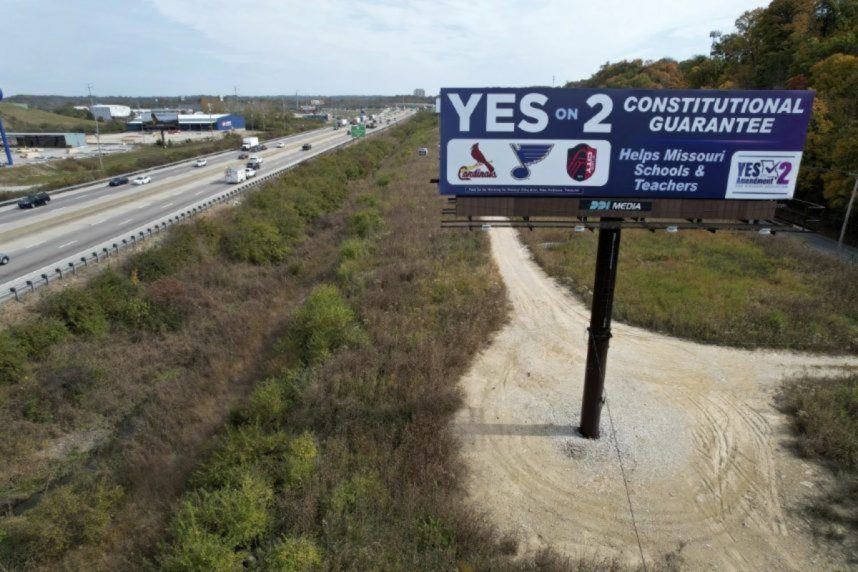Published on: December 5, 2024, 12:41h.
Last updated on: December 5, 2024, 12:57h.
Missouri officially became the 39th state to legalize gambling on professional and college sports. The approval occurred after the certification of the 2024 sports betting ballot referendum by state election officials.

The November 2024 gaming question in Missouri favored the pro-sports betting side by a narrow margin. State Secretary of State John Ashcroft’s office confirmed that Amendment 2 received 50.05% support.
A total of 2,954,343 votes were cast, with 1,478,652 in favor of legal sports gambling and 1,475,691 opposed. The outcome was determined by fewer than 3,000 votes.
With the passage of Amendment 2, legal sportsbooks will be established in Missouri next year. The state will join seven of its eight neighboring states in regulating sports betting.
Neighboring states such as Kansas, Nebraska, Iowa, Illinois, Kentucky, Tennessee, and Arkansas already allow legal sports wagering. Most of them offer both in-person and online sports betting, while Nebraska only permits in-person bets. Oklahoma, the only neighboring state that continues to ban sports betting, shares a border with Missouri.
Another gaming question posed to Missourians in November was regarding the establishment of a Bally’s casino at the Lake of the Ozarks, which was ultimately rejected.
Upcoming Market
Missouri, the 18th most populated state with around 6.2 million residents, includes avid sports fans of its six professional franchises in Kansas City and St. Louis. The sports betting industry invested significantly to legalize sports betting in the state.
The total campaign spending on Amendment 2 amounted to about $55 million, with DraftKings and FanDuel contributing nearly $41 million towards pro-sports betting efforts. Caesars Entertainment invested approximately $14 million in opposing the sports gambling initiative.
Caesars’ opposition to Amendment 2 stemmed from the provision that allows online sportsbooks like DraftKings and FanDuel to apply for mobile wagering licenses without any physical presence in the state. Caesars operates three casinos in Missouri — Harrah’s North Kansas City, Horseshoe St. Louis, and Isle of Capri Boonville.
After the Missouri Gaming Commission finalizes its sports betting regulations next year, the state’s 13 casinos will have the opportunity to seek retail and online sports betting licenses. Professional sports stadiums and venues will also be eligible for a single retail sportsbook license and one online skin.
The licenses for online books will cost $500K for five years, while physical sportsbook licenses will cost $250K. Missouri will collect 10% of the net revenue generated, with the first $5 million allocated to the state’s Compulsive Gambling Prevention Fund. The remaining tax revenue from sports betting will support K-12 public education and higher education.
In addition to casinos and sports venues, Amendment 2 permits two fully remote online sportsbook licenses unattached to a riverboat or stadium/arena.
Financial Impact
State budget officials anticipate an immediate revenue of $11.75 million for Missouri from Amendment 2 once licenses are issued. This amount will surpass the state’s initial costs of $660K for conducting studies to formulate gambling regulations as well as the projected annual regulatory expenditure of $5.2 million.
Moving forward, the state admits uncertainty regarding the exact tax revenue that sportsbooks will bring to Jefferson City. Amendment 2 allows licensed sportsbooks to deduct up to 25% of the monthly “total cash and cash equivalents received” for free play and promotional credits.
According to Amendment 2, “Because the proposal allows for deductions against sports gaming revenues, they estimate unknown tax revenue ranging from $0 to $28.9 million annually.”


